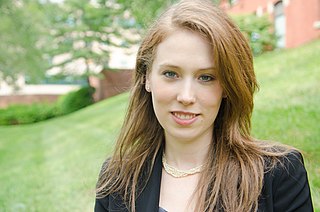Jing Ning is a Chinese-American professor of biostatistics at the MD Anderson Cancer Center of the University of Texas. Her research interests include biomarkers, semiparametric models in survival analysis, inference with length-biased data, and their applications in modeling the health of cancer patients.
Jerome Cornfield (1912–1979) was an American statistician. He is best known for his work in biostatistics, but his early work was in economic statistics and he was also an early contributor to the theory of Bayesian inference. He played a role in the early development of input-output analysis and linear programming. Cornfield played a crucial role in establishing the causal link between smoking and incidence of lung cancer. He introduced the Rare disease assumption and the "Cornfield condition" that allows one to assess whether an unmeasured (binary) confounder can explain away the observed relative risk due to some exposure like smoking.
Naihua Duan is a Taiwanese biostatistician specializing in mental health services and policy research at Columbia University. Duan is a professor of biostatistics with tenure in the Departments of Psychiatry and Biostatistics at Columbia University Medical Center, and a senior research scientist at NYSPI.
Jane Menken, née Golubitsky, is an American sociologist and demographer known for her work in sociology in public and international affairs, population studies, social statistics.

Nilanjan Chatterjee is a Bloomberg Distinguished Professor of Biostatistics and Genetic Epidemiology at Johns Hopkins University, with appointments in the Department of Biostatistics in the Bloomberg School of Public Health and in the Department of Oncology in the Sidney Kimmel Comprehensive Cancer Center in the Johns Hopkins School of Medicine. He was formerly the chief of the Biostatistics Branch of the National Cancer Institute's Division of Cancer Epidemiology and Genetics.
Catherine Ann Sugar is an American biostatistician at the University of California, Los Angeles, where she is Professor in Residence in the Departments of Biostatistics, Statistics and Psychiatry and director of the biostatistics core for the Semel Institute for Neuroscience and Human Behavior. Her research concerns cluster analysis, covariance, and the applications of statistics in medicine and psychiatry.
Lynn Elizabeth Eberly is a professor of biostatistics in the University of Minnesota School of Public Health, whose research involves longitudinal studies, medical imaging, and other forms of correlated data.
Arlene Sandra Ash is an American statistician who works on risk adjustment in health services. She is a professor of Quantitative Health Sciences in the University of Massachusetts Medical School, and chief of the Biostatistics and Health Services Research division there.
Francesca Dominici is a Harvard Professor who develops methodology in causal inference and data science and leads research projects that combine big data with health policy and climate change. She is a professor of biostatistics, director of the Harvard Data Science Initiative, and a former senior associate dean for research in the Harvard T.H. Chan School of Public Health.
Margaret Merrell was an American biostatistician who taught at Johns Hopkins University for many years and became the first female full professor in the Johns Hopkins School of Public Health. She is known for her research with Lowell Reed on the construction of life tables. She also observed that, for longitudinal data on individuals, fitting a curve to each individual and then averaging the parameters describing the curve will typically give different results than averaging the data values of the individuals and fitting a single curve to the averaged data.
Liming Peng is a Chinese biostatistician who works as a professor of biostatistics and bioinformatics at the Rollins School of Public Health, Emory University, where she is also affiliated with the Winship Cancer Institute. The topics of her statistical research include survival analysis, quantile regression, and nonparametric statistics; she applies these methods to the study of chronic diseases including diabetes and cystic fibrosis.

Helen Abbey was an American biostatistician known for her research on the health effects of radiation and on infections among Native Americans, and for her prolific mentoring of students in statistics. She was affiliated with Johns Hopkins University for over 50 years.
Jiayang Sun is an American statistician whose research has included work on simultaneous confidence bands for multiple comparisons, selection bias, mixture models, Gaussian random fields, machine learning, big data, statistical computing, graphics, and applications in biostatistics, biomedical research, software bug tracking, astronomy, and intellectual property law. She is a statistics professor, Bernard J. Dunn Eminent Scholar, and chair of the statistics department at George Mason University, and a former president of the Caucus for Women in Statistics.
Lisa Marie Lix is a Canadian health scientist and biostatistician at the University of Manitoba, where she holds a Canada Research Chair. Topics in her research have included cohort studies and the analysis of variance as well as bowel disease and disease-related bone fracture risk.

Sherri Rose is an American biostatistician. She is an associate professor of health care policy at Stanford University, and once worked at Harvard University. A fellow of the American Statistical Association, she has served as co-editor of Biostatistics since 2019 and Chair of the American Statistical Association’s Biometrics Section. Her research focuses on statistical machine learning for health care policy.
Diana Lynn Miglioretti is an American biostatistician specializing in the availability and effectiveness of breast cancer screening and in radiation hazards from medical imaging; she has also studied connections between Down syndrome and leukemia. She is Dean's Professor of Public Health Sciences and head of the biostatistics division in the UC Davis School of Medicine. She co-leads the U.S. Breast Cancer Surveillance Consortium.
Hongmei Zhang is a Chinese-American biostatistician at the University of Memphis, where she is Bruns Endowed Professor in the Division of Epidemiology, Biostatistics, and Environmental Health Sciences, director of the division, program coordinator for biostatistics, and affiliated professor in the departments of mathematical sciences and biology. Her statistical interests include feature selection, biclustering, and Bayesian networks; she is also interested in the application of statistical methods to phenotype and genetic data and to epigenetics.
Rui Song is a Chinese-American statistician. Her research interests include machine learning, causal inference, and independence screening for variable selection, with applications to precision medicine and economics. She works for Amazon as a senior principal scientist.
Fan Li is a Chinese-American biostatistician whose research includes causal inference and propensity score matching, and their application to comparative effectiveness research in health care. She is a professor in the Duke University Department of Statistical Science, with a secondary appointment in Duke's Department of Biostatistics and Bioinformatics.
Chiung-Yu Huang is a Taiwanese-American biostatistician whose research focuses on statistical methodology for testing the efficacy of vaccines, including survival analysis, competing risks, and recurrent event analysis. She is a professor in the Department of Epidemiology & Biostatistics at the University of California, San Francisco.



